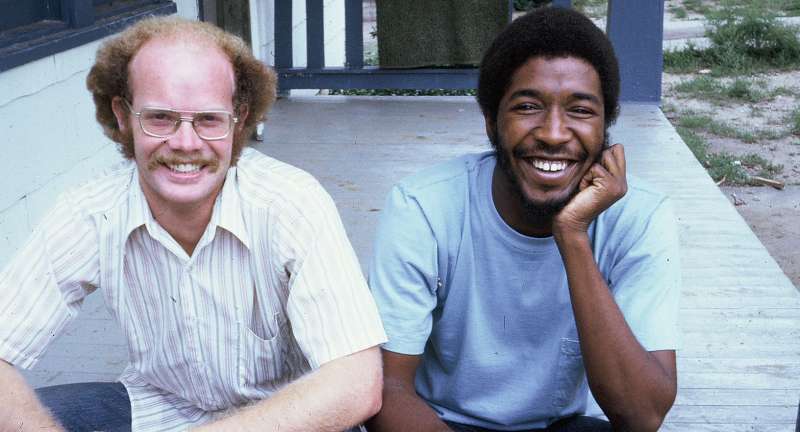In 2000, World Impact began hosting its School for Urban Cross-Cultural Church Planting, training urban church plant teams from all over the nation. In 2001, The John Mark Curriculum was published to train cross-cultural missionaries and three TUMI satellite campuses were opened. By 2004, 20 churches had been planted in eight World Impact cities, and an auditorium at THE OAKS Adult Conference Center was completed, dedicated in honor of board member Dr. Jack Hayford.
- In 2000, we conducted our first week-long Church-Plant School for urban church-plant teams. We have since trained 32 teams.
- In 2000, we established the TUMI Satellite Program which allows churches, denominations, and other Christian ministries to equip their own leaders affordably, rigth where they are.
- In 2000, we began the Let God Arise! Prayer Movement with our belief that only God can change the city.
- In 2001, initial TUMI satellite campuses were launched in three cities; the John Mark Curriculum was completed.
- In 2002, the first TUMI Capstone module was released.
- In 2004, TUMI launched its first in-prison satellite at Ellsworth Correctional Facility in Ellsworth, Kansas. Through this satellite, doors opened for other prison satellites to be established around the country.
- By 2004, we had planted 20 churches in eight World Impact cities, Hayford Hall was dedicated at THE OAKS, and we held our first Candidate Acceptance Program to screen and orient new World Impact missionaries.
- In 2005, World Impact missionaries convened at THE OAKS for a Wi-Fi (World Impact Focus and Identity) Conference. We expanded TUMI's satellite program, which by 2010 reached 75 sites in 11 countries.
- In 2005, The Capstone Curriculum was completed. Capstone is currenlty available in English and Spanish. Other translations are in the works. See our current translation projects.
- In 2006, we received grant to expand satellite network: This grant allowed us to grow from 15 satellites to more than 150.
- In 2008, we began a formal partnership with Prison Fellowship. This strategic partnership allowed us to launch a pilot program in California prisons. We are now in prisons across the country.
- In 2010, TUMIs Capstone Spanish translation was completed. Our efforts expanded beyond planting churches to equipping indigenous leaders to plant churches, with the vision of launching church-planting movements in the city.
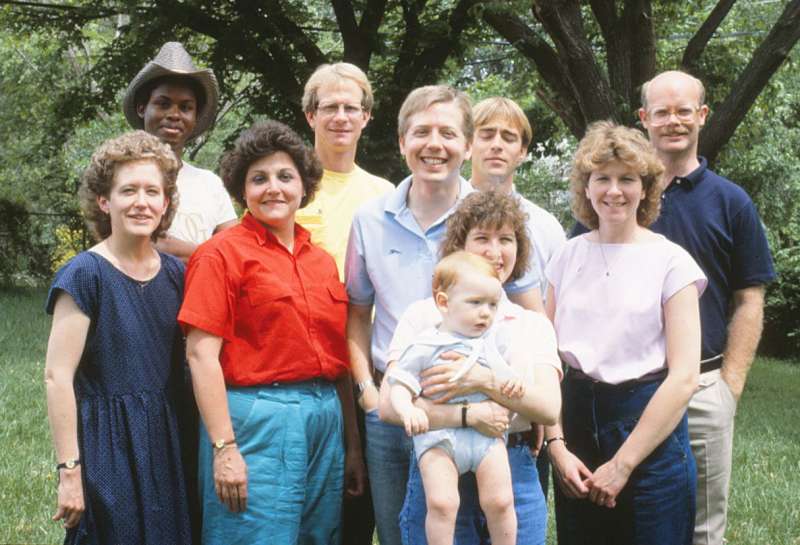 In the early 1980's, World Impact started ministries to the whole person, while keeping its priority of evangelism and discipleship. In 1982, the Los Angeles Christian School was opened and Morning Star Ranch was acquired to disciple young men from the inner city. By 1984, World Impact began job training opportunities (Inner City Enterprises), a thrift shop (The Sonshine Shop), and the Newark Christian School, while writing a culturally-conducive “through-the-Bible” curriculum. Out of these experiences, Keith wrote No Quick Fix, explaining the need for ministry to the whole person and the importance of whole families. In 1986, the Wichita Village property was acquired, from which the Good Samaritan Clinic was launched, an old Y.M.C.A building was remodeled for ministry in St. Louis, low-income housing was developed in Newark, and God provided THE OAKS camp, 65 miles north of Los Angeles. In 1988, the Chester, Pennsylvania, ministry opened, and ministry centers in San Diego and Fresno were remodeled.
In the early 1980's, World Impact started ministries to the whole person, while keeping its priority of evangelism and discipleship. In 1982, the Los Angeles Christian School was opened and Morning Star Ranch was acquired to disciple young men from the inner city. By 1984, World Impact began job training opportunities (Inner City Enterprises), a thrift shop (The Sonshine Shop), and the Newark Christian School, while writing a culturally-conducive “through-the-Bible” curriculum. Out of these experiences, Keith wrote No Quick Fix, explaining the need for ministry to the whole person and the importance of whole families. In 1986, the Wichita Village property was acquired, from which the Good Samaritan Clinic was launched, an old Y.M.C.A building was remodeled for ministry in St. Louis, low-income housing was developed in Newark, and God provided THE OAKS camp, 65 miles north of Los Angeles. In 1988, the Chester, Pennsylvania, ministry opened, and ministry centers in San Diego and Fresno were remodeled.
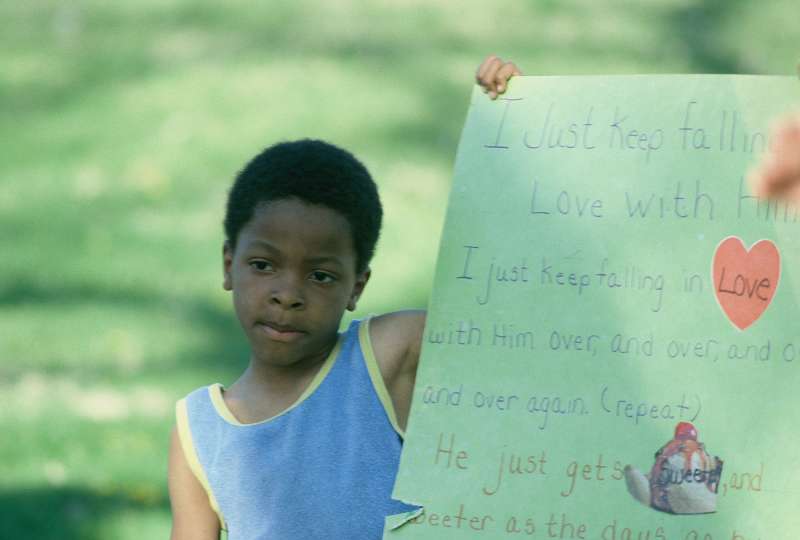
During the 1980's, the efforts of evangelism and discipleship were bearing fruit and new believers were forming into worshiping communities, leading World Impact to plant culturally-relevant churches in the inner city. The massive numbers of immigrants from Central America and Asia, along with the growing numbers of urban poor, underscored the need to not only evangelize and disciple individuals, but to establish new churches among the poor. In 1990, church planting became the primary strategy to evangelize, equip, and empower the urban poor.
- In 1981, Morning Star Ranch in Kansas established a two-year discipleship program for young men from the city. Keith wrote The Making of a Disciple.
- In 1982, we opened the Los Angeles Christian Elementary School, which emphasizes academic competence, Christ-like character and self-confidence to prepare our students for a lifetime of discipleship.
- In 1984, we started Inner City Enterprises, a job-training program which taught young people how to work.
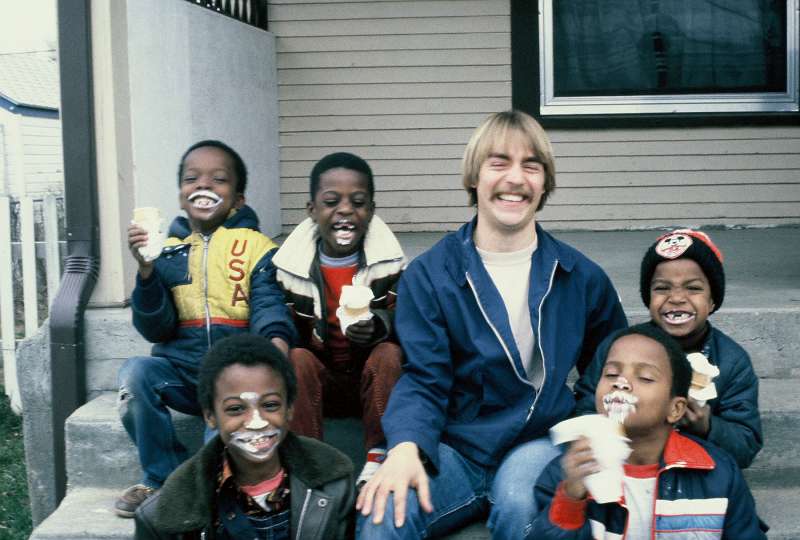 In 1985, Keith wrote No Quick Fix. World Impact started the Newark Christian School and thrift stores in several cities (Sonshine Shops). In Newark, we renovated abandoned row-houses and rented them to families involved with our ministry. Later, many of those families bought these homes.
In 1985, Keith wrote No Quick Fix. World Impact started the Newark Christian School and thrift stores in several cities (Sonshine Shops). In Newark, we renovated abandoned row-houses and rented them to families involved with our ministry. Later, many of those families bought these homes.- In 1986, the former-St. Louis YMCA building was remodeled into a Ministry Center with the help of thousands of volunteers and inner-city workers. An 11-acre, 88-unit apartment complex (The Village) was acquired in Wichita for use as a worship center and the Good Samaritan Clinic. We acquired a 172-acre camp, The Oaks, 65 miles north of Los Angeles and built a prayer chapel.
- In 1987, a 10,000-square-foot gymnasium was built for our Los Angeles ministry and Christian School.
- In 1988, Ministry Centers in Fresno and San Diego were acquired for worship and job training. Our Chester, Pennsylvania ministry opened. We acquired a school building in Chester to start the Frederick Douglass Christian School. We started Saturday-night Celebrations across the country for urban believers.
- Massive immigration took place in our cities during the 80s. Millions came in from Latin America and Asia. Our Los Angeles Celebration Church went from English speaking, to English and Spanish, to all Spanish. Fresno missionaries ministered to many Hmong, Vietnamese and Cambodians.
 In the early 1980's, World Impact started ministries to the whole person, while keeping its priority of evangelism and discipleship. In 1982, the Los Angeles Christian School was opened and Morning Star Ranch was acquired to disciple young men from the inner city. By 1984, World Impact began job training opportunities (Inner City Enterprises), a thrift shop (The Sonshine Shop), and the Newark Christian School, while writing a culturally-conducive “through-the-Bible” curriculum. Out of these experiences, Keith wrote No Quick Fix, explaining the need for ministry to the whole person and the importance of whole families. In 1986, the Wichita Village property was acquired, from which the Good Samaritan Clinic was launched, an old Y.M.C.A building was remodeled for ministry in St. Louis, low-income housing was developed in Newark, and God provided THE OAKS camp, 65 miles north of Los Angeles. In 1988, the Chester, Pennsylvania, ministry opened, and ministry centers in San Diego and Fresno were remodeled.
In the early 1980's, World Impact started ministries to the whole person, while keeping its priority of evangelism and discipleship. In 1982, the Los Angeles Christian School was opened and Morning Star Ranch was acquired to disciple young men from the inner city. By 1984, World Impact began job training opportunities (Inner City Enterprises), a thrift shop (The Sonshine Shop), and the Newark Christian School, while writing a culturally-conducive “through-the-Bible” curriculum. Out of these experiences, Keith wrote No Quick Fix, explaining the need for ministry to the whole person and the importance of whole families. In 1986, the Wichita Village property was acquired, from which the Good Samaritan Clinic was launched, an old Y.M.C.A building was remodeled for ministry in St. Louis, low-income housing was developed in Newark, and God provided THE OAKS camp, 65 miles north of Los Angeles. In 1988, the Chester, Pennsylvania, ministry opened, and ministry centers in San Diego and Fresno were remodeled.
 In 1985, Keith wrote No Quick Fix. World Impact started the Newark Christian School and thrift stores in several cities (Sonshine Shops). In Newark, we renovated abandoned row-houses and rented them to families involved with our ministry. Later, many of those families bought these homes.
In 1985, Keith wrote No Quick Fix. World Impact started the Newark Christian School and thrift stores in several cities (Sonshine Shops). In Newark, we renovated abandoned row-houses and rented them to families involved with our ministry. Later, many of those families bought these homes.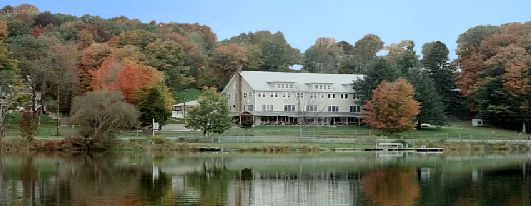 In the early 1990's, as national attention was focused on the inner-city during the Los Angeles riot, World Impact acquired Harmony Heart camp in Pennsylvania, began ministry in Oakland and San Francisco, opened schools in Watts and Chester, launched The Urban Ministry Institute (TUMI) and planted its first churches in various cities. In 1996, World Impact celebrated its 25th anniversary as Deer Creek camp (outside Denver) and the Dallas ministry were added. Keith Phillips wrote about World Impact’s emerging church planting ministry in Out of Ashes. In 1999, World Impact hosted the first of three conferences on urban church planting, called Crowns of Beauty, each of which welcomed over 1200 international delegates.
In the early 1990's, as national attention was focused on the inner-city during the Los Angeles riot, World Impact acquired Harmony Heart camp in Pennsylvania, began ministry in Oakland and San Francisco, opened schools in Watts and Chester, launched The Urban Ministry Institute (TUMI) and planted its first churches in various cities. In 1996, World Impact celebrated its 25th anniversary as Deer Creek camp (outside Denver) and the Dallas ministry were added. Keith Phillips wrote about World Impact’s emerging church planting ministry in Out of Ashes. In 1999, World Impact hosted the first of three conferences on urban church planting, called Crowns of Beauty, each of which welcomed over 1200 international delegates.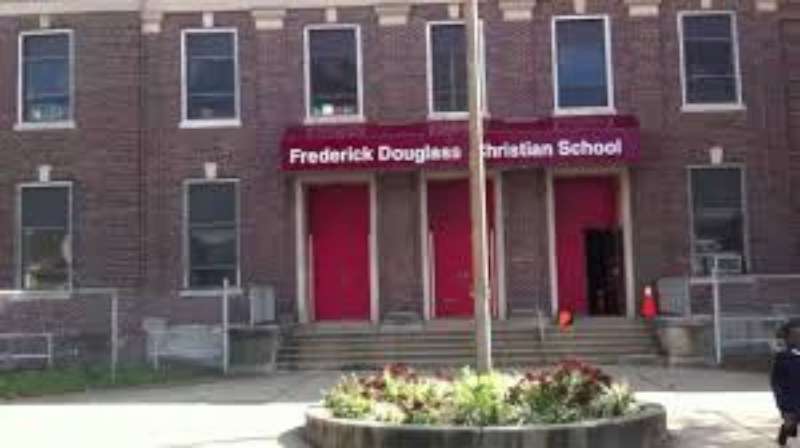
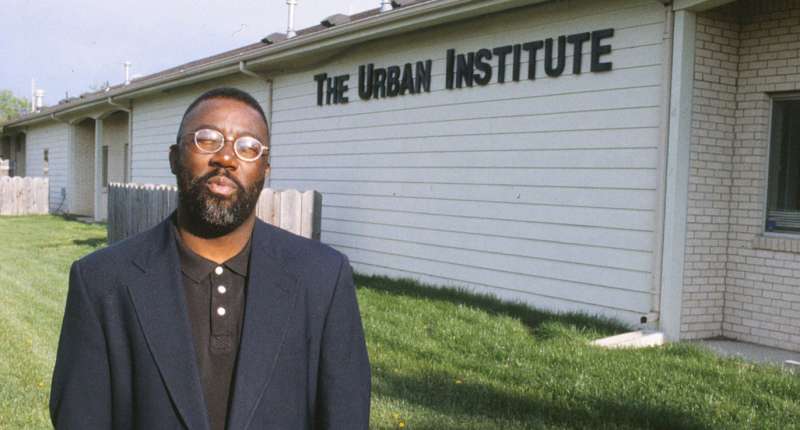
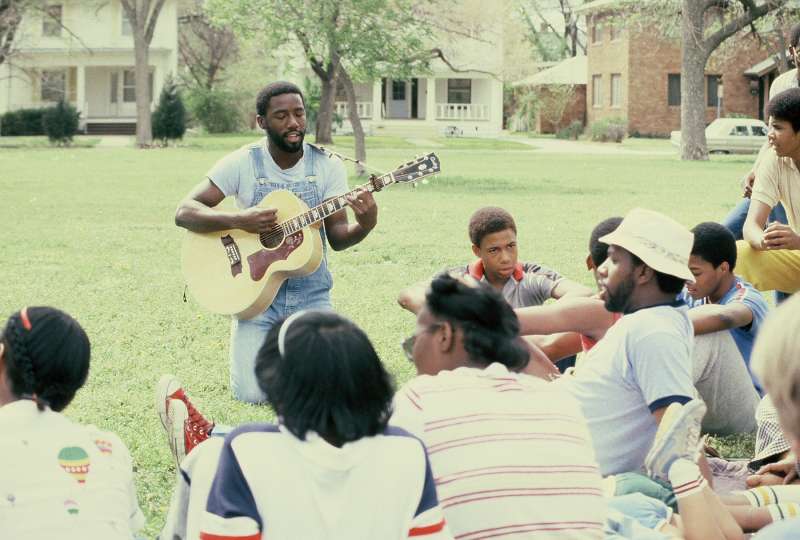 In 1965, Keith Phillips, a student at UCLA, began teaching Youth For Christ Bible clubs in Watts. He began recruiting BIOLA students to volunteer with him and the ministry to the urban poor grew. By 1971, God called Keith to full-time ministry and World Impact was incorporated. Full-time missionaries moved into the communities they served. Evangelism to children expanded to teens and whole families.News of the ministry spread to other urban areas of the country and by 1972 World Impact was ministering in San Diego, California, and Wichita, Kansas. In 1975, Keith wrote about World Impact’s experiences in They Dare to Love the Ghetto. In 1976, the St. Louis and Newark ministries began and World Impact moved into their present headquarters at 20th and Vermont in Los Angeles. In 1977, the Fresno ministry began.
In 1965, Keith Phillips, a student at UCLA, began teaching Youth For Christ Bible clubs in Watts. He began recruiting BIOLA students to volunteer with him and the ministry to the urban poor grew. By 1971, God called Keith to full-time ministry and World Impact was incorporated. Full-time missionaries moved into the communities they served. Evangelism to children expanded to teens and whole families.News of the ministry spread to other urban areas of the country and by 1972 World Impact was ministering in San Diego, California, and Wichita, Kansas. In 1975, Keith wrote about World Impact’s experiences in They Dare to Love the Ghetto. In 1976, the St. Louis and Newark ministries began and World Impact moved into their present headquarters at 20th and Vermont in Los Angeles. In 1977, the Fresno ministry began.